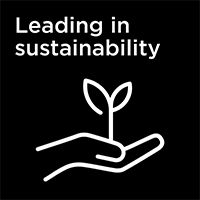Sustainability Shift – Episode 2: Portfolio Sustainability Assessments


Delivering on Clariant's purpose »Greater chemistry - between people and planet.«
This story is an example of how Clariant delivers on its purpose-led strategy.
How do companies evaluate the sustainability of their products – from »natural« labels on skincare to »100% recycled« claims on plastic bottles? Despite not directly reaching consumers, the chemical sector plays a crucial role in providing sustainable portfolio performance to its customers.
Today, three industry experts discuss how chemical companies assess the sustainability performance of their portfolio, beyond climate change. They take a holistic approach that considers other aspects, such as circularity, biodiversity, and waste management. With portfolio sustainability assessments, companies can refine their sustainability contributions by pinpointing improvement areas and tailoring strategies to their products and operations, unearthing impactful innovation opportunities.
Experts in this episode

Bruno Van Parys
Corporate Sustainability Senior Officer - Sustainable Portfolio Management
Solvay

Sharon Dubrow
Senior Director, Sustainability Science and Technical Solutions
American Chemistry Council

Fabio Amorim
Sustainability Specialist
Clariant
Key terms
World Business Council for Sustainable Development (WBCSD): WBCSD is a global, CEO-led community of over 200 international companies working collectively to accelerate the system transformations needed for a net-zero, nature-positive, and more equitable future.
Portfolio Sustainability Assessment (PSA) by WBCSD: A general framework is provided by WBCSD for chemical companies to develop portfolio sustainability management methodologies and processes. It is applicable to existing products and services as well as innovation projects. A second edition was launched in September 2023 to bring best practices on applying PSA for innovation, a stepped approach to embedding circularity in portfolio assessments, and guidance to strengthen product stewardship.
Environmental Management System (EMS): EMS is a set of processes and practices that enable an organization to reduce its environmental impacts and increase its operating efficiency.
Sustainable Chemistry Principles by the American Chemistry Council (ACC): The members of the ACC embrace four core principles of Sustainable Chemistry to help protect human health, conserve natural resources, minimize waste, enhance communities and society, and contribute to technical innovation and success.

Welcome to Sustainability Shift, the Clariant Podcast. Join us as we explore sustainability trends in the chemical industry, covering circularity, climate change, bioeconomy, zero waste and pollution, and social value creation. In a series of short episodes, industry experts will share their unique insights, challenges, and innovative solutions, providing a comprehensive understanding of how the chemical industry can play a role in creating Greater chemistry – between people and planet.

